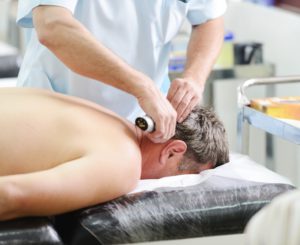Tattoos are a popular form of self-expression, but sometimes they come with hidden risks. A badly healed tattoo can lead to more than just aesthetic issues.
Infection, scarring, and even allergic reactions are common dangers. Poor healing can compromise the beauty and longevity of your tattoo.
Ensuring proper aftercare is essential to avoid these complications. Proper research and care can make the difference between a beautiful piece of tattoo art and a health hazard. Keep on reading to keep your ink looking its best.
Infection Risks
When inked skin doesn’t heal properly, infection is one of the most common risks. If you don’t treat an infection, it can show up as redness, swelling, pain, and sometimes pus.
If you don’t treat these symptoms, they could get worse and cause serious problems. Infections can spread quickly, so you may need antibiotics or, in the worst cases, surgery to drain the infection.
Allergic Reactions
While uncommon, allergic reactions to tattoo ink can occur, especially if the skin doesn’t heal properly. Symptoms can include itching, redness, and swelling around the tattooed area.
Some individuals may develop a rash or even experience systemic reactions if the allergen enters the bloodstream. It’s crucial to use hypoallergenic products and follow aftercare guidelines meticulously.
Scarring and Keloids
Another hidden danger is the formation of scars and keloids, which are raised, thickened areas of skin that form over the tattoo. Poor aftercare can lead to excessive scarring, distorting the appearance of the tattoo. Keloids, in particular, can be challenging to treat and may require laser therapy or corticosteroid injections to manage.
Fading and Discoloration
Improper healing can also result in the fading or discoloration of the tattoo. Exposure to sunlight, inadequate moisturizing, and scratching can cause the colors to appear dull or uneven.
This might necessitate additional touch-ups, which can be costly and painful. To maintain the vibrancy of your tattoo, it’s essential to protect it from harmful UV rays and keep the skin well-hydrated.
Skin Conditions
Poorly healed tattoos can exacerbate underlying skin conditions like eczema or psoriasis. The trauma from the tattooing process can trigger flare-ups, making the healing process more complicated. Individuals with pre-existing skin conditions need to consult with a dermatologist before getting a tattoo to understand the potential risks and complications and necessary precautions.
Toxicity and Long-Term Health Risks
Toxicity is a serious concern associated with poorly healed tattoos. Certain inks contain heavy metals and harmful chemicals that can leach into the bloodstream over time.
Prolonged exposure to these toxins may lead to chronic health issues such as organ damage or cancer. It’s imperative to choose reputable tattoo artists who use high-quality, non-toxic inks to minimize these risks.
What happens if you take a bath with a week old tattoo? There are some possible negative outcomes. However, proper aftercare is crucial to ensure that your tattoo remains a vibrant piece of art rather than an unrecognizable patch of skin. This includes avoiding activities like taking a bath too early, especially within the first week.
The Hidden Dangers of a Badly Healed Tattoo
A badly healed tattoo can cause a lot of health problems and problems with how it looks. Some of the most common risks are infections, allergic reactions, and toxic substances.
Scars and fading can make your ink look bad. You shouldn’t forget about the long-term effects on your health.
To avoid these risks, it is important to get the right aftercare. The bad things that can happen after getting a tattoo are avoidable if you take the right steps.
Did you like this guide? Great! Please browse our website for more!





Be First to Comment